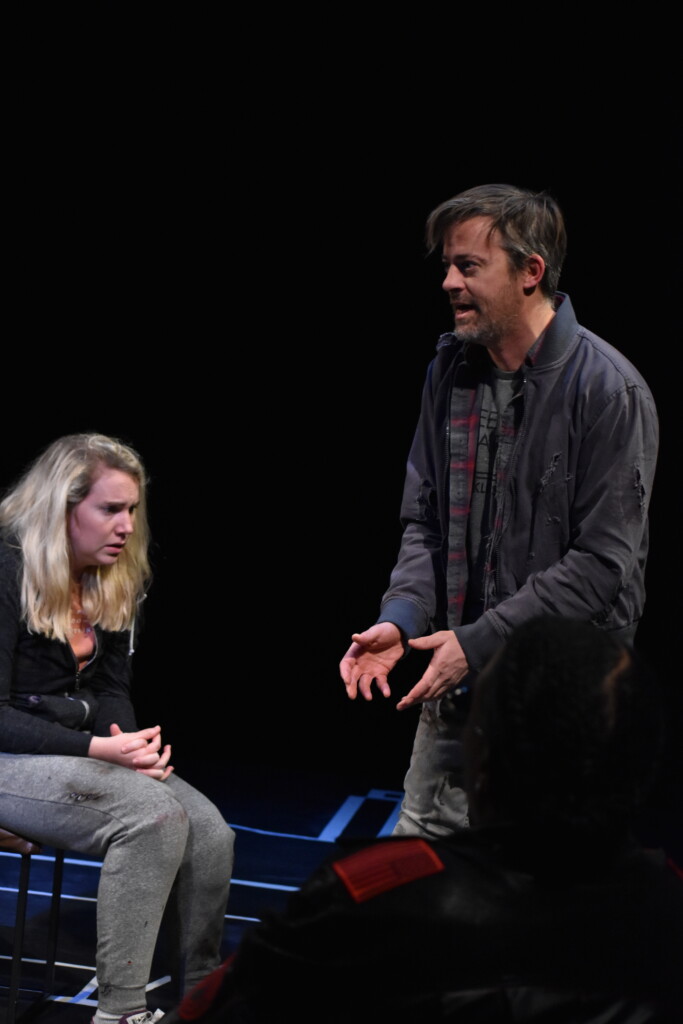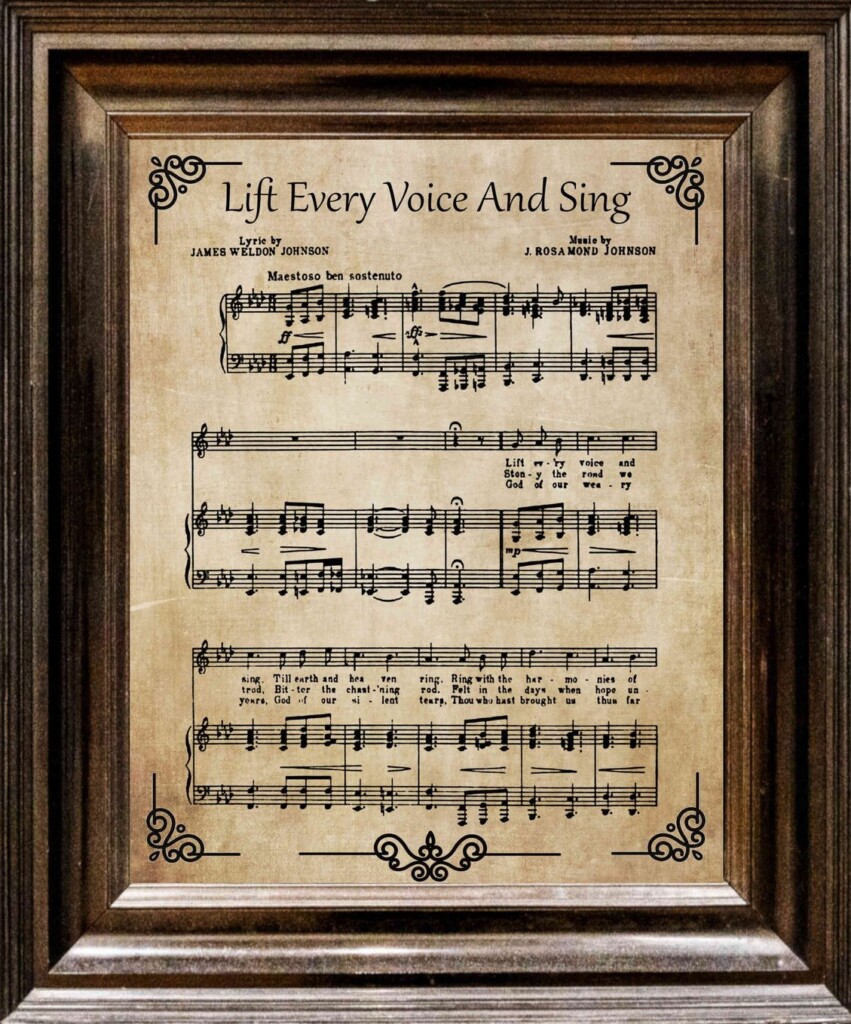Just slightly past the midway point of the opening night performance in the world premiere of Carleton Bluford’s The Clean-Up Project, it was evident that another Plan-B Theatre production was having the usual very good opener. Bluford’s script, about a swift revolution that has transformed the country and flipped the power structure, is complex in its emotional sensations of a panic attack with the rhythm approximating that of a runaway train. Up to this point, the flow of the performance is solid, but there also are several momentary blips in the rhythm. Living in their roles, the actors are committed to giving Bluford’s brilliant script its greatest impact for the audience to absorb its most critical epiphanies. They are so close. Opening night jitters are common.
Then, suddenly everything clicks into that rare state of rhythmic precision — the perfect flow that lifts the evening into the most extraordinary performance in Salt Lake City this critic has seen in 15 years of reviewing. Ryan and Taylor, a white couple, have sought refuge in the home of their friends, Melvin and Jordan, a Black couple who had tried to insulate themselves from the revolution that has occurred and which has led to a new Black nationalist government. But, Cameron, a first lieutenant in the revolutionary Obsidian Order, and Chris, his superior, also are now in the home, waiting on orders to decide the fate of the four individuals, which includes the possibility of all four being executed.

The click that leads to pivoting into the precise rhythm comes with Taylor’s monologue (in an astounding performance by Sarah Walker). Up to this point, Bluford has skillfully foreshadowed the most emotional and dramatic arc of epiphanies of his script. As the matter of self preservation has emerged, the characters are making their own cases. Taylor, who has worked in support of the movement to empower marginalized BIPOC communities, is racked with guilt about a system that has denied equity and justice, which, in turn, she says was created by men:
I didn’t create a system that oppresses not only BIPOC people, but women as well. I didn’t create a system that charges me and Jordan for tampons. I didn’t create a system that pays me less. I didn’t ask for a system that sexualizes and monetizes my body. I didn’t ask for a system that allows me to call the police on people ensuring they will be arrested or killed, no questions asked. I did not ask for ANY OF THIS!
And, then it is Jordan (in an unsurpassed, unforgettable performance by Latoya Cameron) who completes the pivot and transforms the performance into that rare perfection of flow. Momentarily, the throbbing heartbeat sounds signal a panic attack might occur but then Jordan responds. It glides on a gust of wind that has scoured out the valley of all pretensions of civility and the social conventions of pleasing others for the sake of a status quo that always has been unhealthy.

Suddenly, everything in the performing space becomes like wallpaper. There are no distractions. We are witnessing a full immersion in the dramatic text. It is a fully fleshed convergence of every drop of blood, sweat, tears, fears, confidence, self identity, risks, faith, skepticism, disbelief, success, disappointment, hope and despair that has ever embodied the experience of Jordan and every Black woman. Even as she has yet to discover what her fate might be, Jordan can finally breathe without constrictions or restraint:
… I’m done. All my life I have… tried to be the upstanding person. Fighting against the stereotypes of what a woman… a Black woman has to be.
Can’t be loud, I have to speak quietly, or I am another one of those angry Black bitches overstepping the line. When I want to roar to the mountaintops, and let my voice pierce through the skies, I catch myself, and turn my voice into a prayer in my heart. …
I have been questioned, gaslit, and even my words have been stolen. When I make speeches, do you know what the outcome has been? Violence. Threats to my family, to myself, to my Black body. Consequences. Not applause (emphasis added)…
It’s the longest monologue that any of the characters has in the play but its rare strength is how it supports the rhythmic lifeblood of the narrative without sacrificing a beat. When Taylor responds that Jordan had never said anything like this to her before, Jordan says, “I should have. For so long I didn’t know how to speak as myself. For myself. I’ve done you and myself a great disservice.”

Cameron’s performance as Jordan is that extraordinary phenomenon where an actor not only lives in the role but also has allowed the role to live fully through her. Every vestige of self-consciousness disappears and the sense of time is distorted, which fortifies the transcendental flow of the equally extraordinary narrative that occupies the entire space in the theater. For those of us attending and observing, the experience is at once humbling and mystifying as it is clarifying and piercing in its fully fleshed truths. It is these experiences which provide the essential nourishment in our quest for empathy and genuine humanity.
From that point, the remainder of the performance is perfect, unquestionably one of the most potent, emotionally impactful pieces of ensemble work I have seen on any local stage among the hundreds of performances I have written about in The Selective Echo and The Utah Review. As Jordan’s words continue to reverberate silently in the entire space of the Studio Theatre of the Rose Wagner Performing Arts Center (they never disappear or diminish through the end of the play), the flow toward the dramatic climax is unimpeded.

Every actor in The Clean-Up Project finds the click and pivot that actors Walker and Cameron had achieved: Cal Beck as Cameron, the first lieutenant of the Obsidian Order whose own future teeters precariously as his commitment is called into question; Chris Curlett as Melvin, Jordan’s husband, a loving man but who also thought that being overprotective was constructive and prudent, when it was not; Matt Sincell as Ryan, Taylor’s husband who strives to atone for his white guilt and the privileges he enjoyed because of his upbringing but who also has yet to realize what real atonement entails; and Dee-Dee Darby-Duffin as Chris, the unwavering superior of the Obsidian Order whom, in her own eyes, currently sees no need to balance retribution and reconciliation.
As the preview in The Utah Review indicated, The Clean-Up Project is framed as a jolt to our conscience and to test our capacity to overcome our fears and insecurities and deal directly with our history. That test certainly will not be an easy one to pass for some, as evidenced by some reactions in the audience on opening night. On my way out, I overheard a couple of audience members talking about their discomfort regarding the play’s conclusion and what was being asked of audience members, which also defies conventional forms. The historical foundations of Bluford’s script are incontrovertible. To wit: one should note the play’s coda in which Darby-Duffin sings the hymn Lift Every Voice and Sing, popularly known as the Black National Anthem.

Written more than 120 years ago with a poem by James Weldon Johnson and music by his brother J. Rosamond Johnson, the hymn has a venerable history and its visibility has grown significantly in recent years. Johnson, whose career included being a school principal and the first certified lawyer in Florida since Reconstruction, wrote the poem as a tribute to commemorate what would have been Abraham Lincoln’s 91st birthday. His brother, an accomplished musician, wrote about the experience of setting his brother’s poem to music, “I could not keep back the tears, and made no effort to do so. I was experiencing the transports of the poet’s ecstasy.”
Earlier this month, U.S. Rep. Jim Clyburn from South Carolina introduced Congressional legislation to make Lift Every Voice and Sing the nation’s official hymn. A glint of hope is that the proposed legislation has some bipartisan support, including Republicans from Congress, such as U.S. Rep. Mike Johnson from Louisiana. The hymn would be performed along with the current national anthem.
The overarching questions of history, the role of individual and collective historical memories and the articulation of identity as one comes to term with difficult historical truths are embedded in the impressive canon of plays that Plan-B has commissioned, developed, workshopped and produced. Contributing to that unique canon are such Utah playwrights as Eric Samuelsen, Julie Jensen, Matthew Ivan Bennett, Melissa Leilani Larson, Elaine Jarvik, Jenifer Nii and Debora Threedy, among others.
One cannot conceivably overestimate what this small independent theatrical company has achieved, with an impressive body of original plays written by one of the most genuinely diverse representations of creative voices that exceeds what is found in many theatrical companies around the country. One can vocalize the mission but few have committed to realizing that mission as comprehensively as Plan-B has achieved.
Outstanding in every regard, Bluford’s The Clean-Up Project cements its place in the Plan-B canon and The Utah Enlightenment. In addition, Bluford achieves clear, exceptional results in playing with forms in his script writing that translate seamlessly across theatrical and cinematic borders.
The production is directed by Jerry Rapier, with Bluford as assistant director. Bluford says the play will be made into an independent feature-length film for submission to film festivals. Production with location shooting in Utah is slated to begin later this year.
Performances will continue through Feb. 27 (Thursday through Saturday at 8 p.m. and additional performances on Saturday at 4 p.m. and Sunday at 2 p.m.). While all in-person tickets have been sold, a virtual waiting list has been created to alert patrons about any late-breaking seat availability. Streaming video on demand will be available for purchase Feb. 23-27. For more information about tickets and COVID-19 safety policies along with what is required for in-person admission to performances, see the Plan-B website.



